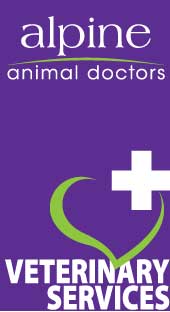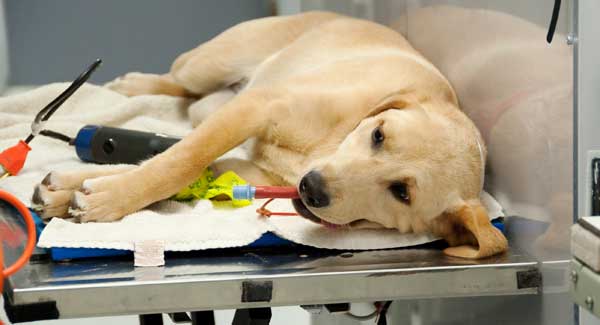alpine animal doctors veterinary services
Spay & Neutering

For more information or to make an appointment for this service please call...
5756 2444
- Monday: 8.30 to 5.30
- Tuesday 8.30 to 5.30
- Wednesday: 9 to 1
- Thursday: 8.30 to 5.30
- Friday: 8.30 to 5.30
- Saturday: 9 to 1
- Sunday: Closed
7047 Great Alpine Road,
Porepunkah, VIC 3740
July National Desexing Month
The Alpine Animal Doctors is proud to partner once again with the National Desexing Network and the Alpine Shire council to promote responsible pet ownership. We’ve been with NDN for over a decade and we’re so thrilled the Alpine Shire is continuing its support for this valuable and important venture.
In support of responsible pet ownership for the month of July, the Clinic will be offering discounts to the cost of all our desexings and the Alpine Shire has also committed to an additional $50 subsidy* on top of the already discounted pricing.
There has never been a better time to get your pet desexed!
Call the Clinic now on (03) 5756 2444 for further information and bookings.
*pets must be registered with the Alpine Shire Council to be eligible for the the additional $50 subsidy.
DESEXING OPTIONS AND INFORMATION FOR PET OWNERS:
In modern veterinary clinics practicing holistic and integrative medicine desexing is no longer an ‘all or nothing’ approach. These days there are a number of ways in which your pet can be prevented from either becoming pregnant or causing unwanted pregnancies in other dogs and cats. At Alpine Animal Doctors we offer our clients the choice of all of the available desexing options, including the very latest techniques.
Desexing both male and female pets involves a surgical procedure. For many years the procedures used to spay (or spey) or neuter your pet have been limited to the surgical removal of the testes (castration) for male dogs and cats. For females spaying has meant the complete removal of both the ovaries and the uterus, known as an ovariohysterectomy.
Ovariohysterectomy and castration remain the most common methods used to desex an animal in Australia. In recent years however, we have seen mounting evidence that the conventional methods of desexing, particularly ovariohysterectomy in female dogs, may actually be factors in the development of long term negative health impacts and compromised longevity in some breeds.
There is also evidence that, for larger breeds of dog, the age at which your pet is desexed can play a crucial role in ensuring that the healthy growth of your dog is not adversely affected.
To combat the potential health issues which may be caused by ovariohysterectomy and castration alternative procedures have been developed. For male animals we can perform a vasectomy, which renders the dog sterile but leaves the testes intact.
For females an alternative to ovariohysterectomy is an Ovary-sparing spay, or OSS (a hysterectomy), where we remove the entire uterus but leave the ovaries intact. With this technique the dog retains her female hormones, which are now known to play a major role in reducing long term health risks.
While these newer procedures are viable and safe desexing alternatives it’s important to understand that the traditional ovariohysterectomy and castration procedures still have their place. All the available options have their pros and cons. We recommend that you discuss all the options with us before making a decision. Dr. Bek can advise on the benefits and downsides of the various procedures and suggest the most appropriate method and optimum time based on the age, gender and breed of your pet.
If you want to learn more, or compare the various options before talking to us please check out the links on the right (note that these will each open in a new window to allow you compare each procedure).
Regardless of which option you choose, at Alpine Animal Doctors your pet will have a full physical examination prior to surgery to make certain he or she is healthy enough to cope with the operation. The procedure is carried out under a full general anaesthetic. Your pet’s heart rate, respiration, oxygen and anaesthetic levels are continually monitored both electronically and by a trained veterinary nurse, substantially reducing any risk from anaesthesia.
Usually patients are in our hospital for the day of surgery only, going home the same evening. Most patients recover very quickly, feeling entirely feel normal within a couple of days.
Having your dog or cat desexed is one of the most important decisions you can make as a responsible pet owner. Desexing pets is not only the most effective contraceptive, it has also helped to dramatically reduce the numbers of unwanted dogs and cats.
Find all of our veterinary services here...
NOT THE SERVICE YOU WERE LOOKING FOR?

LEARN MORE
Use the links below to see an explanation of what is involved in surgical desexing procedures and the pros and cons of each option. Each link will open in a separate popup window to allow you to easily compare the alternatives.
Castration or Vasectomy — which one is right for my male dog?
OHE or OSS — which is best for my female dog?
At what age should I have my pet desexed?
